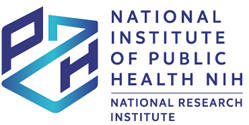STRESZCZENIE
Wykonano pomiary potencjału utleniająco-redukcyjnego w wybranych naturalnych wodach mineralnych i źródlanych różniących się pochodzeniem i składem chemicznym. Próby do badań pobierano w różnie usytuowanych punktach procesu produkcyjnego: bezpośrednio z ujęcia, w miejscu wejścia rurociągu do rozlewni, po odżelazianiu i/lub odmanganianiu, po filtracji, na końcu linii rozlewniczej oraz w wodzie świeżo rozlanej do opakowań jednostkowych. Równocześnie kontrolowano niektóre parametry fizyko-chemiczne wody pochodzącej z tych punktów: barwa, mętność, przewodnictwo właściwe, odczyn, utlenialność, zawartość żelaza, manganu, antymonu, arsenu - korelujące z oznaczanym potencjałem redoks. Stwierdzono przydatność stosowanej potencjometrycznej metody pomiaru potencjału redoks do zaplanowanych badań.
ABSTRACT
The redox potential was measured in selected natural mineral and spring waters of different origin and chemical composition. To analyse the effect of the technological process the samples to be studied were collected at different stages of the bottling process: directly at the intake, at the beginning of the pipeline, after the deironing and/or demanganisation, after filtration, at the end of the pipeline and at the end of the process from the freshly filled bottles. Along with the redox potential measurements, some physico-chemical parameters of the samples studied were determined: colour, turbidity, conductivity, pH value, susceptibility to oxidation, contents of iron, manganese, antimony and arsenic. The potentiometric method applied to measure the redox potential was found suitable for the purpose of the study.
You can change cookies settings in your browser. Restricted use of cookies in the browser configuration may affect some functionalities of the website.



